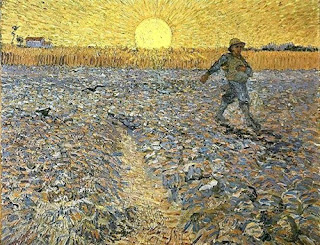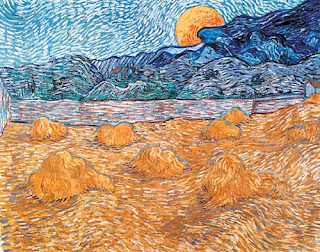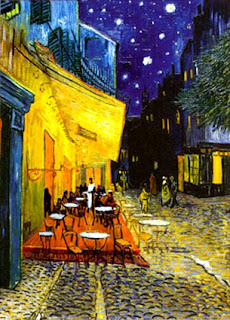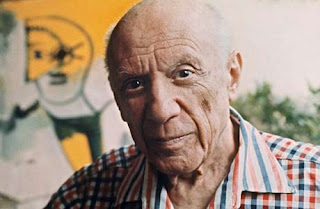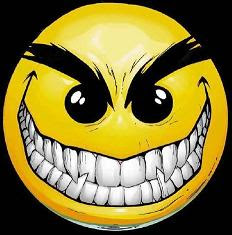
In case you doubted that I was a bad guy before:
<-- it's me. Time to rant about Harry Potter, book seven. (Maybe it's just sour grapes, and maybe I've officially become the contrarian ass who hates The Beatles, not because The Beatles are bad, but just for the sake of argument, and for attention. Or maybe this is my desperate plea, my cry for help to anybody who still reads my blog to post comments so I know I'm not just writing for the space aliens to read 3000 years from now, when they dig up our civilization. . . but here goes anyway.) My Beef With Harry Potter and the Deathly Hallows Now I'm serious: if you haven't read the book, DON'T read this post. It's ALL about Harry Potter Seven (and touches on the previous books). Yes, it's in my inimitable writing style, so you can read it for the fun of reading my words (hyuk), but if you plan on reading the book, and haven't yet
SKIP TO THE NEXT POST BY CLICKING HERE. Any place where it says "SPOILER WARNING", I'm about to talk about plot points in the book, so if you don't want to know what happens,
SKIP THIS POST AND READ PREVIOUS ONE INSTEAD. Also avoid reading the comments. The comments include spoilers, too.
Or go here instead.
So yes, I'm spoiling the book in both ways: giving away the ending, AND pointing out flaws that will be glaring once they've been pointed out (like sometimes a friend makes a comment about another friend, like "He interrupts constantly" or "she ends every sentence like a question" or "really. loud. chewer." and, after that person mentions it, you can NEVER be around that person without being annoyed by those things yourself.) So don't read this post if you want to preserve the magic of old Harry Potter.
1. Let's just get this out of the way. YES, it's a good book. It's as readable as bacon is edible, that is to say, compulsively, irresistably so. Rowling is a master of storytelling and scene-writing, she creates interesting situations and her characterizations are full of energy and life. Yes, the book touches on all the important points foreshadowed in the previous books, and each of the characters, in one way or another, gets his or her due (except Snape and Dumbledore).
2. I have some problems with the book. Snape is as woefully underwritten. All through the series, Snape has been the most interesting character. The "Is he good or is he bad?" conundrum lent dramatic energy to every book. In this book, everything is explained (too late in the book), at a point where Harry can't make any more choices about what to do or how to feel about him. He's a total non-factor, except as a source of important information. . . about the BACKSTORY! Changing him from the dramatic lynchpin of the series to a source of exposition was a shocking disappointment.
SPOILER WARNING IN THIS PARAGRAPH Mainly, though, WE BARELY SEE HIM! Matt rightly said Snape is the Gollum of the Harry Potter series. Imagine if Gollum disappeared halfway through
The Two Towers and didn't reappear until Frodo and Sam passed him at the foot of mount Doom, where, nearly dead of thirst from waiting for them, he only has the energy left to point and say, "Keep right past the fist-shaped boulder. Loose gravel there. Good luck!" and die. That's the level of short shrift Rowling gave Snape in book seven. As we learned in 2 Fast 2 Furious, it's a bad move to take the most interesting character OUT of the story.
3. There were points where I really felt like Rowling was just going through the paces -- as if she'd written out a chart of characters and brainstormed each one's "just dessert," and basically plotted her seventh book around making sure we revisit every interesting member of the Potter world somewhere or another. The first half of the book especially felt, at times, like a farewell tour, playing all the greatest hits one more time. Good for a fanfiction, not for the climax of the most popular book series of all time.
4. The Dursleys were barely despicable at all. Throw me a bone here!
5. Give me more in the epilogue! At least make it INTERESTING. Matt pointed out, after the climax of Lord of the Rings, there's another hundred pages or so of the Scouring of the Shire, another hundred pages of time to revel in Sauron's defeat, and enjoy Frodo's newfound asskickery, before the book finally ends. How quickly did Rowling wrap up this book? ELEVEN pages after Voldemort dies, the book, epilogue and all, is finished. It's like she got sick of her own series, and wanted to wrap it up as quick as she could. (PS: Wouldn't Return of the King have been better if they had 20 minutes of the hobbits cleaning up the Shire instead of having 28 minutes of "And. . . . it's over. . . no, no it isn't. Gotcha!"
These guys made fun of the ending of Lord of the Rings in a really funny way.
6. Voldemort is dumb. (SPOILER WARNING) -Voldemort uses magical means to try and kill Harry four times (book one, four, five, early in book seven) and also as a baby. Each time, he fails. Obviously, its time to change tactics. If he had any brains, he'd have just given each of his minions a knife and said "disarm him, and cut his throat on sight." Messy, but effective. Bellatrix threatens Hermione with a knife -- wizards obviously know how to USE knives (unlike postage stamps, which they don't quite get), so why not? -instead, he insists on facing Harry himself, in the same arena (magical duel) where he lost many times before. ego? pride? stupidity. Then, in the final climax, when he didn't kill Harry THIRTY MINUTES BEFORE with his killing curse, he STILL tries to defeat Harry in a duel AGAIN! My buddy quotes an old Alcoholics Anonymous proverb: "Doing the same thing, but expecting different results, is insanity." Moldy-wart is BIGGER than Harry, and meaner -- he could probably have killed Harry with his bare hands if he wanted to, if he'd disarmed him. At least he hadn't already
tried that and FAILED (four times).
-if he really fears death, why does he make so many powerful enemies, and try to take over the wizarding world, sticking his neck out so far, rather than holing up in a forest and working his dark, life-extending enchantments? (
That one's courtesy of Gregg Easterbrook from espn.com)
-He should have read the
evil overlord list.
-(MAJOR SPOILER WARNING) He's not scary anymore.

By losing to Harry so often (see above), he loses the menace he had in the first three books, before they even arrive at the climax, and by STILL wanting to duel Harry magically after he
came back to freaking life the last time, he proves himself obstinate and suicidally stupid. It's Darwinism, pure and simple: evil masterminds that stupid don't deserve to be in the evil overlord gene pool anymore, and must make room for smarter antagonists, like Darth Vader, the bugs in Starship troopers, Godzilla, and Moe, the bully in Calvin and Hobbes. In Lord of the Rings, Sauron is more frightening, BECAUSE we never see him. We see the terrifying creatures that serve him, and if Sauron is undisputed master of such monsters, he must be miles more terrifying than them! We don't
need to see him to be frightened. Like God in Milton's
Paradise Lost vs. God in Dante's
Paradiso, the one shown and displayed loses his power and mystery and, ultimately, his impact. It's just more impressive that Dante's God was so great the entire epic poem had to end rather than us laying our eyes on His face, compared to Milton's God, who was so pedestrian he could be reduced to explaining theological excuses for why he allowed Adam and Eve to sin. I'd rather have Dante's God of mystery than Milton's Great Heavenly Explainer.
7. (This point is mostly Matt's, though I agreed once he pointed it out) Harry won by dumb luck, especially in the first two books, and in the later books, more because of who he was (The Boy Who Survived, selfless, brave, kind to house-elves, able to love, endowed with special powers because of the twin cores, because of the scar, etc.) than because of any real wizarding skill of his own. That was disappointing. I
wanted to see Harry kick some butt, on his OWN steam, his own wizarding power -- I mean, he didn't learn ANY new spells after the patronus charm in book three (except apparating, which is more a dramatic device than a spell for fighting evil -- faster transitions when you can teleport magically) -- sorry, but if adult wizards can do the cool stuff THEY can, how could Harry have made it through year six of Hogwarts (much less defeat the greatest evil wizard in a century) with about five spells, and a lot of guts? When did Hermione learn all the cool spells SHE knew? Why weren't the books about HER, when she's obviously the most buttkicking wizard of the trio?
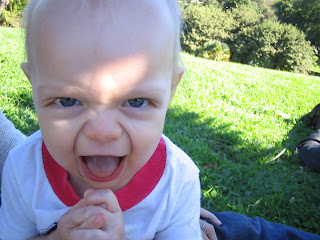
True to my evil nature,
I shall destroy your enjoyment
of the latest Harry Potter book!
Mwahahaha!
8. Too much wandering in the woods. Dissipated any momentum that existed at the beginning. Made Harry seem like a schmoe. Plus, Harry spent too much time resenting either himself, Ron, Hermione, or Dumbledore in the last two books. Eyes on the prize, son! Unless the book is Catcher in the Rye, and the writer is JD Salinger, self-absorption and resentment aren't appealing! Harry (and Rowling) could get away with it for one book (book five, when it actually WAS him against the world) but after three books of self-pity, sullen resentment, and occasional rage and/or outbursts, I got tired of it. It would have been much nicer to see him get through this book on righteous rage or noble purposefulness, or even hell-bent-for-revenge passion, rather than surly, resentful, and passive-aggressive confusion about the clues Dumbledore left him. Plus, right to the bitter end, he NEVER trusts his friends. All the way to the end, he lies to Hermione and Ron about his ability to see into Moldy-wart's mind. What kind of a hero is this kid, anyway? I've heard the Potter books criticized before for the kids never trusting adults, but by book seven, he's even lying to his friends!
9. Dumbledore does things (especially concerning the Horocrux he found in the Gaunt's cabin) that just don't seem to fit with the rest of what we know about him. Sure, they were important to the action and other, later plot points, but they were still pretty dumb for a wizard smart enough to discover twelve different uses for dragon blood, AND powerful enough to defeat the wielder of the Elder Wand in open combat. And how on EARTH does he turn up inside Harry's head in the chapter King's Cross? That chapter -- an entire chapter of exposition in the middle of the climax of an incredible, LONG book series, was the most awkward chapter in the entire seven-ilogy.
My Conclusion:
10. I think it was because somebody was pressuring her to finish the book in time to coincide with the release of the fifth movie. The book (especially Snape, the episode in Godric's Hollow, the intermnable "wandering in the woods" part, the episode in the Malfoy Castle, the awkward "King's Cross" chapter, and Voldemort's mental meltdown --what's worse than a brain-fart? a brain-shart?), just felt like they could have benefited from more ripening. My guess is that her deadlines were too rigid, and her crafts(wo)manship suffered, which is an unfortunate end to the series. I waited two years; I'd have been glad to wait one more, even three more, if you could have made book seven one for the ages, Ms. Rowling -- I would have thanked you for taking your time.
11. Go back to point 1 and remember that I DID enjoy reading it the first time, and Rowling IS a really good storyteller, and writes action better than just about anyone I've read. However, I just felt like she could have done better. Return of the King is the best of the Lord of the Rings trilogy, the jewel in the crown. This one was a bit more like the original Star Wars trilogy, peaking in the middle (books three-five; The Empire Strikes Back), and ending with a let-down. Yeah, the right people lived and the right people died, but it just didn't live up to the standard set by what came before. (Return of the Jedi -- come on. Teddy bears with bows and arrows?)
By the way, while I'm spoiling stuff everybody loves anyway, how did Fezzik learn that Count Rugen was the six-fingered man in The Princess Bride?
And there is no Santa Claus, either.
And Shakespeare was a plagiarist.
And I've been to Narnia, and it sucked. Bad food.
And babies smell bad.
(boy I'm a jerk)

 Girlfriendoseyo and I found this fantastic little tea room. The raspberry tea tasted like pulling off the road in the Okanagan valley and picking raspberries off a bush somewhere. So good.
Girlfriendoseyo and I found this fantastic little tea room. The raspberry tea tasted like pulling off the road in the Okanagan valley and picking raspberries off a bush somewhere. So good. the owner had a green thumb, too. Girlfriendoseyo was impressed by the foliage. I was mostly just amazed at the perfectly balanced flavours in the teas.
the owner had a green thumb, too. Girlfriendoseyo was impressed by the foliage. I was mostly just amazed at the perfectly balanced flavours in the teas.





 The two artists were, too. You should go see these shows (find the place) at the Hangaram Art Museum, south of the Han River, but north of Gangnam. You'll know Klimt from these paintings mostly--however, let me remind you that the difference between seeing a JPG of a picture on your computer screen, and seeing the actual thing (especially when it comes to paintings), is kind of like the difference between reading a car's engine specifications in an auto magazine, and being hit by that car on the street.
The two artists were, too. You should go see these shows (find the place) at the Hangaram Art Museum, south of the Han River, but north of Gangnam. You'll know Klimt from these paintings mostly--however, let me remind you that the difference between seeing a JPG of a picture on your computer screen, and seeing the actual thing (especially when it comes to paintings), is kind of like the difference between reading a car's engine specifications in an auto magazine, and being hit by that car on the street. the queen
the queen and grumposeyo
and grumposeyo Gimme back my damn cigar!
Gimme back my damn cigar! Where they cook the food on this great squared gas grill that's all loaded with spilled-over deliciousness.
Where they cook the food on this great squared gas grill that's all loaded with spilled-over deliciousness.
 Watching the lady cook is fun. The food is just amazing: the best dwenjang soup I've had by about a mile.
Watching the lady cook is fun. The food is just amazing: the best dwenjang soup I've had by about a mile.





